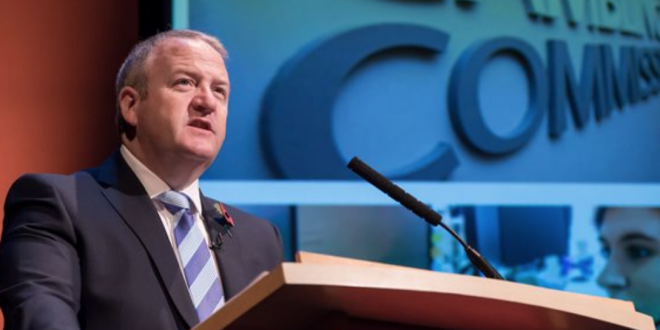Neil McArthur, the chief executive of the UK Gambling Commission (UKGC), has urged the UK finance industry to join a ‘multi-sector collaborative approach’ to tackle gambling-related harms, stating that ‘there is always more that can be done’ to protect vulnerable customers.
Building on the previous efforts to ban gambling with credit cards, the UKGC CEO addressed the ‘important role’ that the financial industry has to play in making gambling safer.
Meanwhile, Lords Select Committees have urged the government to enforce stricter conditions in relation to tackling financial harms caused by gambling addiction, as a core requirement to the imminent overhaul of the 2005 Gambling Act.
Speaking at the Money and Mental Health Policy Institute conference, McArthur stated: “At the Gambling Commission we are determined to use all the tools at our disposal to make gambling safer. We have deliberately set out to disrupt old ways of thinking to raise standards for consumers.
“There are some who question the Commission’s approach but complex issues – and gambling related harm is a complex issue – require a wide range of perspectives and participants to solve them.
“There are no silver bullets here. It’s easy to come up with great soundbites – but real change takes hard work, collaboration and innovation in lots of different areas. If we are to achieve a lasting reduction in gambling related harm, there must be a multi-sector partnership approach.”
The virtual event placed a key focus on the innovations within the financial sector, including the introduction of gambling blocking services, which stops a consumer’s bank account or debit card from being used for gambling transactions.
The conference forms part of a two-year programme of work that Money and Mental Health is undertaking which will prioritise engaging the financial sector in efforts to reduce gambling-related harm.
With enhanced customer affordability checks becoming a major consideration in the review of the 2005 Gambling Act, McArthur also confirmed that the UKGC cannot wait for the outcome of the review ‘to make progress’.
He added: “We are still awaiting details of what the Government’s Gambling Act Review will look like and we will, of course, support the Government with our data, experience and expertise. But we will not wait for the Review’s outcome to make progress.
“We will shortly be launching a consultation on customer interaction and how gambling operators should use affordability to keep their customers safer.
“We want to work in partnership with the financial sector to find innovative ways to reduce gambling-related harm. We all have a part to play to protect vulnerable consumers. The Gambling Commission has already banned gambling with credit cards, as evidence showed that it would reduce the risk of gambling harm to consumers. That was an important step, but there is always more that can be done.
“The financial sector has an important role to play. We have already seen the introduction by banks of gambling blocking software, together with the use of data to support customers affected by problem gambling.”
This October, gambling addiction and treatment support charity GamCare, urged the government and business community leaders to recognise and raise awareness of gambling related financial risks as the UK enters its autumn and winter months under COVID-19 restrictions.
Meanwhile in its summer update, industry charity GambleAware stated its concerns at imbalanced practices and safeguards implemented by UK banks and current accounts to stop gambling transactions.
GambleAware would issue a ‘blueprint of safeguards’ to UK Finance and the Financial Conduct Authority (FCA) to recommend to UK financial services as best practices protecting customers.
Katie Alpin, Interim Chief Executive of the Money and Mental Health Policy Institute, concluded: “In recent years we’ve seen the financial services industry play an increasingly important role in supporting people affected by gambling problems – from the introduction of gambling blocks, to new advances in using customer data to identify and help those who are struggling.
“We hope that today’s conference will help galvanise firms from across the sector to build on this progress, and to go even further in improving support for customers experiencing gambling problems.
“That could make a big difference to the two million adults across Britain whose gambling habits may be having a damaging impact on their financial and mental wellbeing.”









